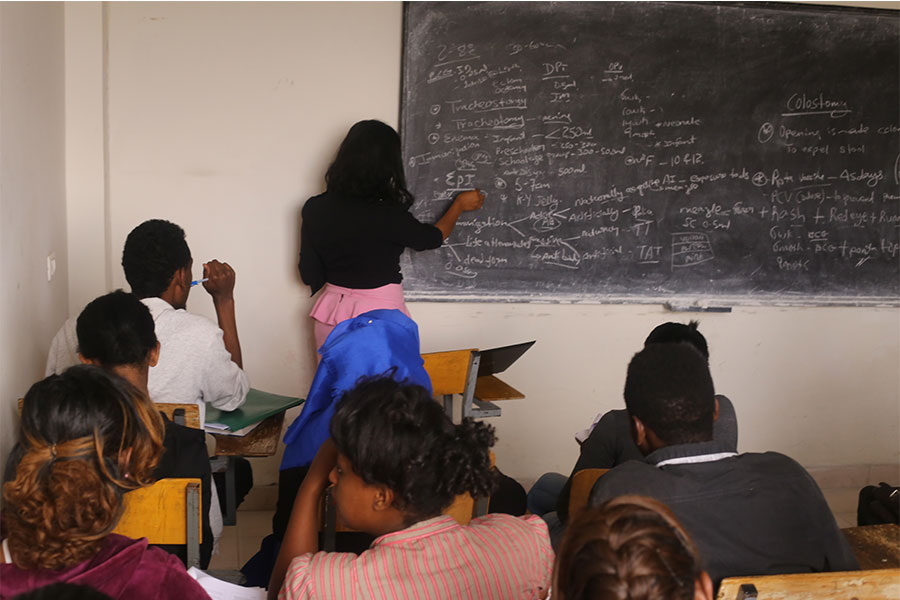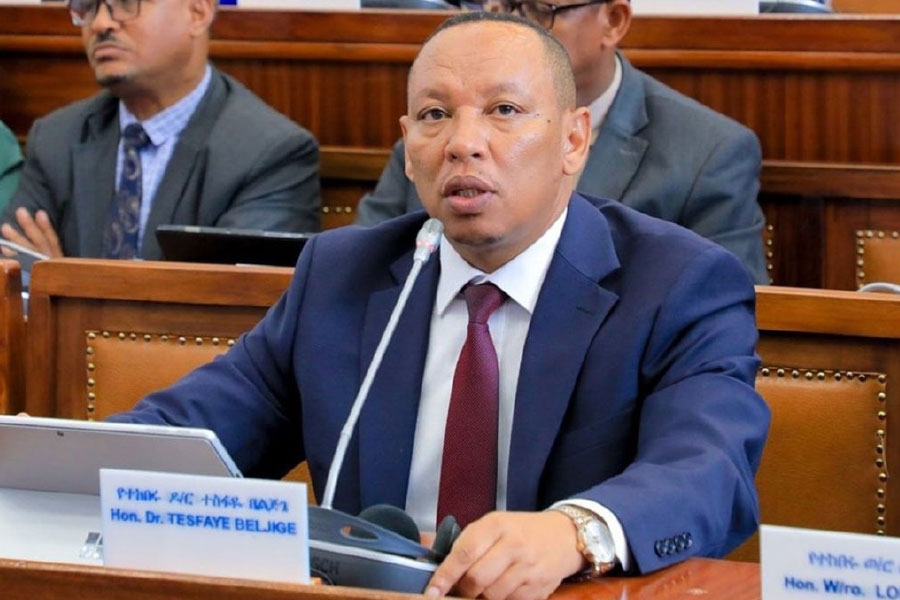
Commentaries | Jul 10,2021
Apr 6 , 2019
By Asseged G. Medhin
Prime Minister Abiy Ahmed’s (PhD) year-long stay in office was full of significant economic, diplomatic and political changes. Building on peace with Eritrea, broadening the political space to include competing parties and economic reforms designed to invigorate the economy by expanding the role of the private sector were just some of the most promising reforms taken in the past year.
The macroeconomic problems nonetheless have remained challenging, if they have not worsened. Inflation is still in double digits, and the foreign currency shortage and growing debt has persisted. Left unattended, these problems will eventually turn into a catastrophe that severely drags back the reforms. It is necessary to have a clear political direction that will encompass change.
In light of the need for sweeping changes, the government is being supported by the international community, technically and financially, to realise private sector engagement, including in projects through arrangements known as public-private partnerships. These efforts will not only improve efficiency in key sectors such as telecom, energy and logistics but also mobilise private capital that will enable Ethiopia to maximise the resources available for development financing.
The effort to ensure that the private sector leads the economy is done in the name of creating competitiveness, by way of better quality services and goods. Ultimately this will help Ethiopia to attract foreign direct investment and raise export revenues.
Why is it that Ethiopia cannot break through the challenges of a negative trade balance, high unemployment, double-digit inflation, a shortage of hard currency and huge debt?
It is a result of poor allocation of resources. An unskilled human capital, inefficient bureaucracy, non-independent institutions, poor infrastructure and misguided economic policies have impeded economic dynamism.
The World Bank’s Doing Business Index of 2019 ranks Ethiopia at 159th place, two points higher than last year, but still one of the lowest levels even by African standards. It is incredible how a country leading the continent in gross domestic product (GDP) growth rate is lagging behind when it comes to how easy it is to do business.
There have to be policy interventions in the short run, including privatisation, and a clear political and economic reform, which is fundamental by nature in the long run. Prime Minister Abiy’s administration should as well come up with a clear economic roadmap, which should be able to demonstrate to the business class the government’s readiness to improve the economic environment.
We need to see a new economic development model that will give diversified investments and innovative solutions a chance. We need an economy that can secure a fairer distribution of resources, where entrepreneurs and investors can thrive.
When private investment is the key driver of economic growth, the existing transformation will be more dynamic and sustaining this positive momentum will mean an economy led by the private sector. This investment climate can be realised through financial reforms, of which the planned liberalisation of banking is a good beginning, continued infrastructure development through private-public partnerships, and the facilitation of market entry in key sectors.
Such efforts should as well be geared to build upon the already impressive advances by African countries, including Ethiopia, toward a continental trade market. Trade is the most successful when undertaken between neighbors, where transport costs will help consumers focus their disposable income savings and investments.
As Ethiopia is becoming more integrated into regional infrastructure networks - with Ethiopian Airlines playing a major role in air travel, a new railway linking Addis Abeba to Djibouti, and the construction of a power transmission line to Kenya - the foundations are being laid.
It is true that in securing social and political stability, enhancing civic engagement is indispensable to creating an enabling condition for sustained economic growth and transformation. This, too, requires a new political outlook, encompassing multiparty democracy, of which the Prime Minister is duly focused on.
PUBLISHED ON
Apr 06,2019 [ VOL
19 , NO
988]


Commentaries | Jul 10,2021

Viewpoints | Sep 06,2020

My Opinion | May 08,2021

Commentaries | Jan 01,2022

Radar | Apr 22,2022

Covid-19 | Apr 17,2020

Covid-19 | Aug 08,2020

Fortune News | May 25,2019

Fortune News | Jun 20,2025

Commentaries | Apr 26,2025

My Opinion | 131460 Views | Aug 14,2021

My Opinion | 127812 Views | Aug 21,2021

My Opinion | 125791 Views | Sep 10,2021

My Opinion | 123428 Views | Aug 07,2021

Dec 22 , 2024 . By TIZITA SHEWAFERAW
Charged with transforming colossal state-owned enterprises into modern and competitiv...

Aug 18 , 2024 . By AKSAH ITALO
Although predictable Yonas Zerihun's job in the ride-hailing service is not immune to...

Jul 28 , 2024 . By TIZITA SHEWAFERAW
Unhabitual, perhaps too many, Samuel Gebreyohannes, 38, used to occasionally enjoy a couple of beers at breakfast. However, he recently swit...

Jul 13 , 2024 . By AKSAH ITALO
Investors who rely on tractors, trucks, and field vehicles for commuting, transporting commodities, and f...

Jun 28 , 2025
Meseret Damtie, the assertive auditor general, has never been shy about naming names...

Jun 21 , 2025
A well-worn adage says, “Budget is not destiny, but it is direction.” Examining t...

Jun 14 , 2025
Yet again, the Horn of Africa is bracing for trouble. A region already frayed by wars...

Jun 7 , 2025
Few promises shine brighter in Addis Abeba than the pledge of a roof for every family...

Jun 29 , 2025
Addis Abeba's first rains have coincided with a sweeping rise in private school tuition, prompting the city's education...

Jun 29 , 2025 . By BEZAWIT HULUAGER
Central Bank Governor Mamo Mihretu claimed a bold reconfiguration of monetary policy...

Jun 29 , 2025 . By BEZAWIT HULUAGER
The federal government is betting on a sweeping overhaul of the driver licensing regi...

Jun 29 , 2025 . By NAHOM AYELE
Gadaa Bank has listed 1.2 million shares on the Ethiopian Securities Exchange (ESX),...